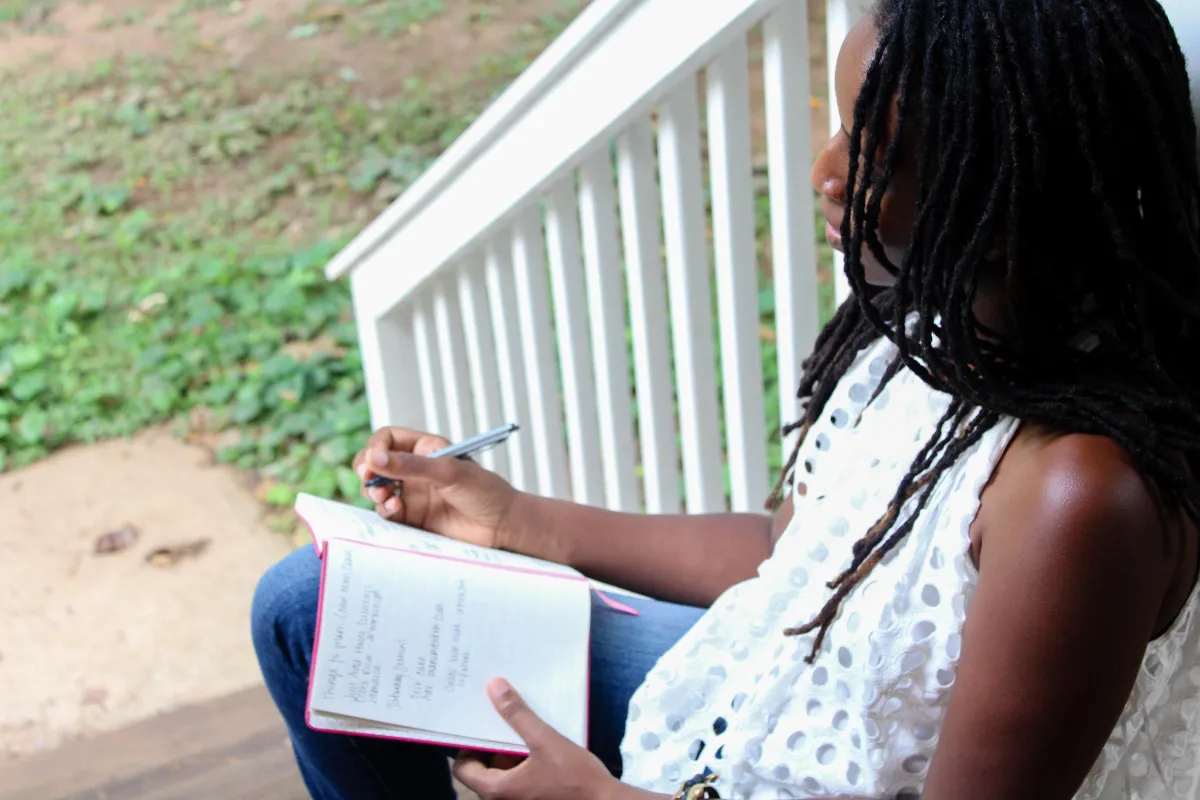Blog
How we think about mental health impacts our well-being. In these pages I offer my perspective - an African-centered, black-centered view of us and of what makes us well. an alternative path to healing both the personal and the collective.

On Self-healing
Healing ourselves is a revolutionary act. Yet, and perhaps because of this, self-healing is highly neglected if not completely ignored in traditional psychology and related fields. Just imagine if each and every one of us were able to heal ourselves of the past hurt we have accumulated in this lifetime and through our ancestry. What kind of world could we create? Would anyone be able to, or even interested in dominating anyone else? If we were all living in our power – because healing frees us of our past and places us in the present moment where all our power lies – how would this transform our lives and communities? Think of the energy that would be freed up to create the sorts of things we dream of but never dare to create because we are scared, unsure, stuck. Just pause here for a moment before you proceed and try to imagine this situation. If possible, take a pen and paper and write down all the things that you would do and be if you could heal for yourself all the wounds that are stopping you from being fully yourself.
What is Healing, Anyway?
What does it mean to heal? There are many ways of thinking about healing, but they all involve changing your state of being or health from an unwanted state to a wanted one. Put simply, healing is letting go of the past, which is easier said than done but completely possible. It is establishing a state of harmony in our own being; between our mind, our emotions and our body. To heal is to be well again, to take the pain away, to get unstuck, to let our natural energy flow. To heal is to return to or achieve a state of wholeness and health, to get over something so that we can feel good again and have good thoughts. To heal is to change a negative pattern.
The wonderful thing about healing is that there are many ways to go about it and that it is accessible to everyone. There isn’t a single formula, approach or discipline that can offer you healing. There are as many paths to healing as there are cultures, even people in the world. Working with someone, a professional of some kind, be it a psychologist, therapist, coach, doctor, traditional healer or pastoral care worker; are common ways that people seek healing. But we can also achieve healing on our own. Our bodies and our minds have the ability to self-heal. This process is easy to observe on a physical level (wounds heal themselves and broken bones grow back together) but is less obvious when it comes to emotional or spiritual matters. An example of a simple age-old technique to aid self-healing is prayer. When healing professionals work with people to resolve a problem, what we are doing is tapping into and enhancing that natural ability for self-healing, facilitating the process, if you will. You can also tap into it yourself and use it more consciously to improve your own mental and spiritual health.
Why Self-Healing?
While there is nothing wrong with seeking help and it’s even a wise thing to do when in need, there are many factors, internal and external, that can sometimes make it difficult for us to do so. In those instances, it is empowering to know that there are things we can do to help ourselves. Here are some of the reasons you may want to take your healing into your own hands:
Asking for help and opening up to someone else takes courage and can be very difficult for some people. It is a vulnerable position to be in and not everyone feels safe to do it. Taking steps to heal yourself on your own can help you build up the courage to later ask for help outside of yourself. Human connection – being seen, heard and understood by another – are very important aspects of healing, also, so it is a good idea to ask for outside help at some point.
If you are struggling with finances, the tools that I am going to share with you are free. That means that despite your financial hardship you still have access to the possibility of healing.
If there are no therapists or other healers in your area, or if for some other reason you have no access, you can still take care of yourself.
It is empowering to be the agent of change in your own life. As you take responsibility for your own life and well-being, and begin to see the changes in your life, you’ll be so proud of yourself and that will give you hope and strength to keep going. You will also grow in confidence.
Building self-reliance, especially if you struggle with issues of dependency is another good reason to take charge of the healing process in your life.
3 Tools for Self-Healing
So, here are the tools:
Journaling
Journaling is helpful when you feel you cannot share your worries with anyone, due to either trust, safety or any other reason. It is a great way to harness the power of writing to heal your past, make sense of your present and imagine a better future. There is a lot of science behind this assertion, easy to find with a google search, but the bottom line I want you to get here is that it works. There is no right or wrong way of journaling. But writing down your thoughts, feelings, fears, and worries on a regular basis helps you tap into your emotions and find release. Recording your dreams and your questions about life in your journal helps you find clarity and peace out of confusion. Journaling can help you calm yourself from emotional turmoil, putting order into your thoughts when they are running amok. It can be a tool for resolving unfinished business and heal past trauma. Consistency is more important than frequency, so don’t turn it into a heavy task that becomes another reason to be hard on yourself.
Meditation
I am sure you have heard that meditation is good for at least a million other things, which makes it dubious. But, simple and free as it is, it really is an all-around remedy for general well-being. People can get really caught up on doing meditation right, which becomes counterproductive. Guided meditations help, there are tons available for free on YouTube. You can find one that is specifically geared to healing, even to healing the specific problem that you are grappling with. But, really, you can just sit or lie down in a comfortable, open position, close your eyes and focus on your breath. 5 to 10 minutes a day is enough, although you can certainly meditate for hours if you want. It is better to do 5 minutes every day than to do 40 minutes once a week. You can always gradually increase your time if you really get into it.
Meditating creates space for resting and regenerating your mind in silence. Healing meditation trains you to direct your thoughts, consequently your mood, in more positive and productive directions, which has been shown to be profoundly healing both physically and mentally. It calms the nervous system down, reversing the negative effects of stress on your body and mind.
Spending Time in Nature
Nature has the power to heal because it is our home. It is where we come from and who we are. And it is free. Although we have known the healing power of nature, probably since the beginnings of time, scientists are now finding evidence to confirm what we already knew. Contact with nature is extremely beneficial. It leads to improved thoughts and feelings, to good health, and it is centering. Being surrounded by nature and feeling happy are connected. When in nature our bodies experience a shift from the sympathetic nervous system (stress) to the parasympathetic nervous system (rest). Being in nature activates the body’s relaxation response – our heart rate goes down, breathing slows down and deepens, our mental chatter reduces, we experience less worry and increased appreciation for the present moment. Being in nature benefits mental, spiritual and physical healing.
Try one or more of these tools daily and consistently for a minimum of 3 weeks and let me know in the comments how it goes. If you are feeling brave and really up to the challenge, combine two or more of them. If you get results, keep going, don’t stop. Most people can create change in their lives, only a few manage to sustain it. Be the one who sustains it. Don’t stay off the wagon just because you fell off it. Climb back up however many times it takes for it to stick. Approach it as research, you are trying to find out whether this really works in the long run. And you can still use these tools even if you are already in therapy, it will enhance the effectiveness of the therapy.
Copyright © 2024 Yema Ferreira, All rights reserved.
